【新唐人2012年3月12日訊】美國卡耐基梅隆大學的語言技術研究院(Language Technologies Institute at Carnegie Mellon)的數位學者做出一項研究,併發表在《新科學家》期刊上。研究深入觀察了中國如何控制微博網站上的討論,分析了6000萬條微博信息,從中確定哪些話題是被禁的。研究發現,法輪功、人權以及艾未未等都是被禁的話題。國內學者表示,大陸網友已經習慣採取各種方式同審查者玩攻防戰,最大限度的利用社交網絡打破官方媒介的壟斷,傳播真實的心聲。
美國學者的研究還發現中國的審查系統行動迅速,任何帶有政治敏感性的詞彙都會受到審查。大陸學者表示,微博管制,多集中在政治話題或者當局認為衝擊政局穩定的公共事件和突發事件。
「中國社會科學院近代史研究所」研究員雷頤:「涉及到政治方面總體而言是比較敏感一點的。民生方面就比較寬鬆一點。」
大陸文化評論家葉匡政:「微博他的敏感詞被禁,有一些是一直被禁的,類似像法輪功,六四這樣一些目前明顯是禁區的。另外每天他的敏感詞在增加。比如王立軍事件出來之後,網友議論一多,可能王立軍就變成了敏感詞。每一個熱點事件如果影響到他們覺得大陸政治穩定的話,這都會成為敏感詞。比如烏坎事件。」
受到官方審核的傳統媒體曾經是中國民眾獲取消息的唯一渠道。但是自從有了微博這種社交網絡,民眾真實的心聲獲得了一個極好的釋放和傳播渠道,儘管發貼常常會「被敏感」被刪除。網友們卻各顯神通,同審查者鬥智鬥勇。
大陸文化評論家葉匡政:「因為我們常年在這種敏感詞被禁的環境,如果必須要發言的話,你也就只有適應這種方式。我相信經常玩微博的人可能都是這樣,經常用旁敲側擊,或者可能還沒有成為,比如王立軍事件還沒有成為敏感詞的時候,就非常激烈的談一談。」
「中國社會科學院近代史研究所」研究員雷頤:「這個好像已經習以為常了。他刪是他的,我們想辦法說我們的。或者有的人採取中間加個點、加個星。」
葉匡政表示,微博這種新興的網絡社交工具對開啟民智非常有好處。
葉匡政:「相對於這些體制內這些正規媒體、傳統媒體來說,應該說微博釋放了一個非常大的言論空間。比如說你不讓我表達非常明晰的觀點,我可以通過傳播事實。我從我身邊的家人,包括朋友使用微博的感受,很多過去思想比較保守的人,很多人都改變了目前對政府,或者對社會的態度。」
微博同時史無前例的給精英階層和普通民眾提供了親密接觸的機會。葉匡政指出,過去學者,知識份子和官員,跟民眾的生活完全是隔離的。而微博為各個群體搭建了一個共同的平臺,既讓精英人士捲入到民眾的言論空間,同時也讓民眾參與到很多重大政治話題,包括政治事件的討論中。
新唐人記者秦雪、周天採訪報導。
New Scientist On CCP’s Censorship Of Microblogs
Chinese Communist Party'(CCP) control over microblogs'
discussions was recently on focus by US scholars.
Experts from Carnegie Mellon’s Language Technologies
Institute published an article on the topic in New Scientist.
The researchers analyzed as many as 60 million posts
to verify those forbidden topics.
Not surprisingly, "Falun Gong", "Human rights,"
and "Ai Weiwei" are found to be on the filter list.
Chinese scholars remarked that the mainland netizens
are used to playing "letter games" against the censorship.
They are trying to spread the truth and their true thoughts
as much as they can, using the social networks.
US researchers have found that China’s censorship system
has a short response time.
Any word which is politically sensitive will be censored.
Chinese scholars reveal the controlled by CCP discussions.
They include political topics, public events or emergencies,
perceived by CCP as "threatening" to its "stability,"
Lei Yi (Researcher, Chinese Academy of Social Sciences):
"In general, political topics are always more sensitive than others, such as economy and livelihood."
Ye Kuangzheng (Cultural commentator,): "It’s almost known
to everyone, that some words are all-time banned, such as 'Falun Gong' and 'June Fourth Incident.'
On the other hand, the general list of forbidden words
is increasing day by day.
For example, the topic of Wang Lijun’s defecting became
hot online, thus 'Wang Lijun' might be added to the list too.
Every event CCP sees as a threat to its "political stability,"
is regarded as sensitive, like the 'Wukan event'."
In the past, the strictly censored traditional media
were the only source for information for the Chinese people.
But as microblogs and other forms of social network emerge,
the Chinese found a very convenient way to communicate and express themselves.
Though the posts can be frequently deleted
by the censorship, the netizens never surrender.
They keep fighting back against the system,
using their courage and wisdom.
Ye Kuangzheng: "We live in a speech'censorship
environment all our lives.
Thus we have to get used to these ways of expression
when we have something to say.
I think every microblogger knows how to use a metaphor.
We also talk intensively before a word becomes sensitive."
Lei Yi: "We are used to such a life style.
They delete it using their ways, we talk using our ways.
For example, a widely used trick is to add a 'period'
or a 'star' between the characters."
Ye said that the social networks are very useful
in helping people free their minds.
Ye Kuangzheng: "Compared to the official or traditional
censored media, microblogs provide more speech' freedom.
For example, if making personal comments is not allowed,
I can spread some facts and truths instead.
Many of my family members and friends, including some
very conservative ones, have changed their opinions on the government or the society after using microblogs."
Furthermore, the microblogs unprecedentedly bring
the social elites and ordinary people close to each other.
Ye pointed that in the past the lives of scholars, intellectuals
and officials were completely separated from the civilians.
Now the appearance of microblogs provides
a common platform shared by all different groups.
The elites can learn how ordinary people think, and people
can publicly express opinions on political events or topics.
看下一集

【禁聞】衛生部消毒?中國器官移植來源成疑
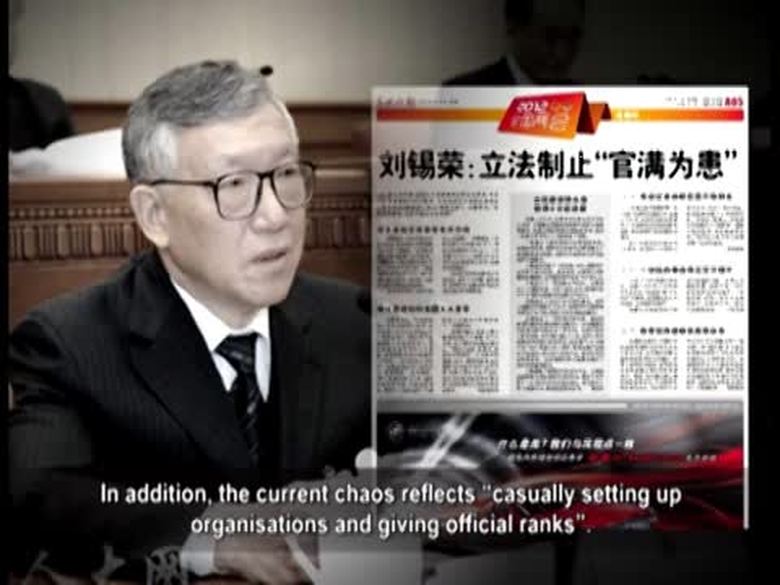
【禁聞】中共官滿為患 代表倡立法管控

【禁聞】中共竊西方最尖端戰機機密
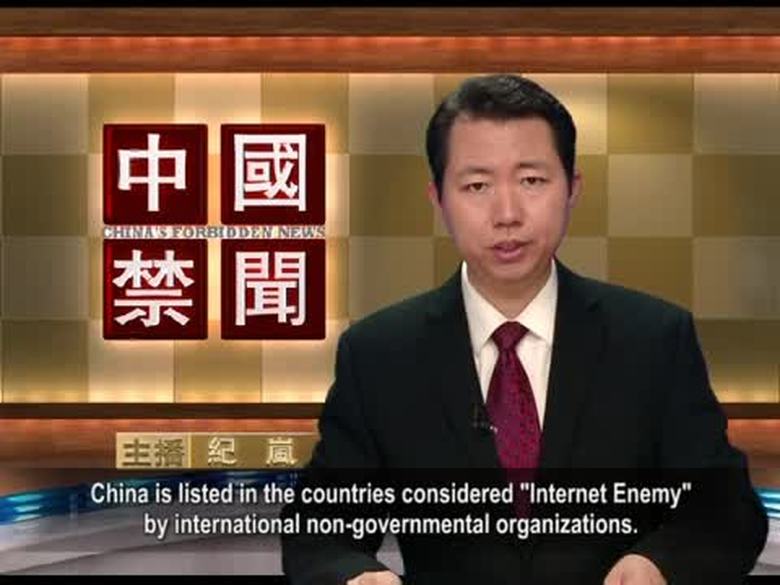
【禁聞】中國被列入「互聯網之敵」名單
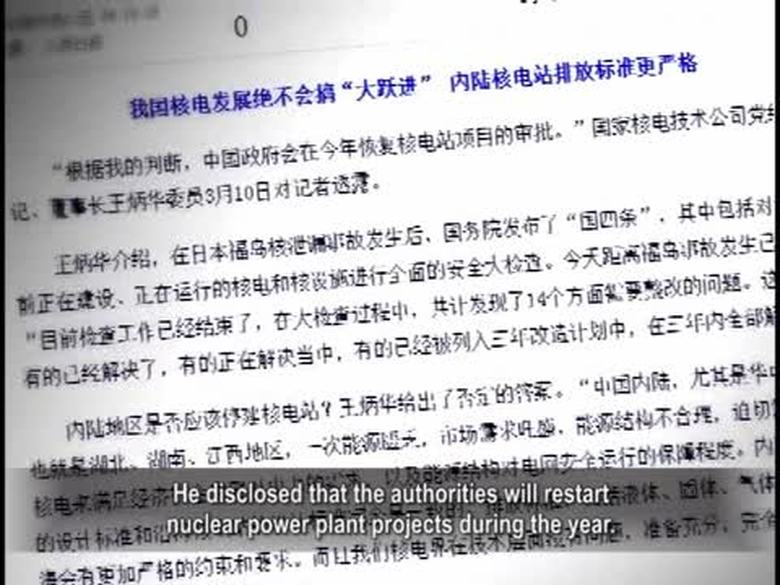
【禁聞】福島核洩漏週年 大陸擬續推核電
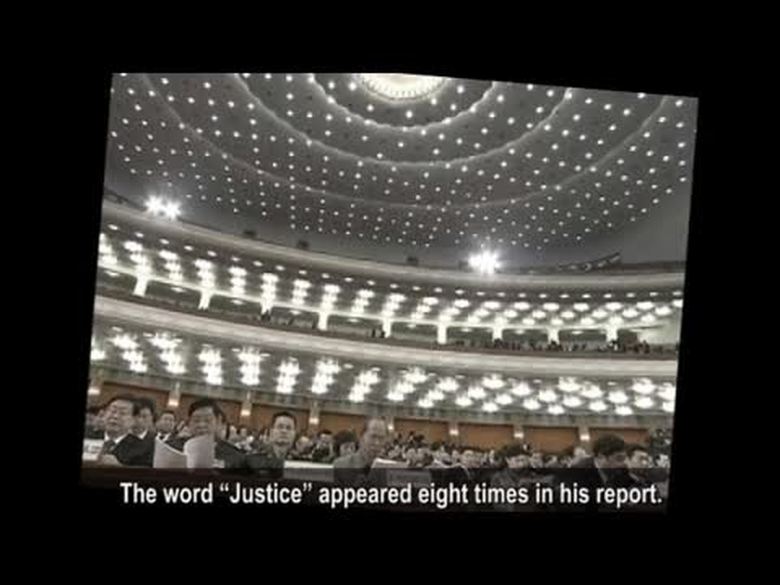
【禁聞】專家評:維穩向前進 司法向後退
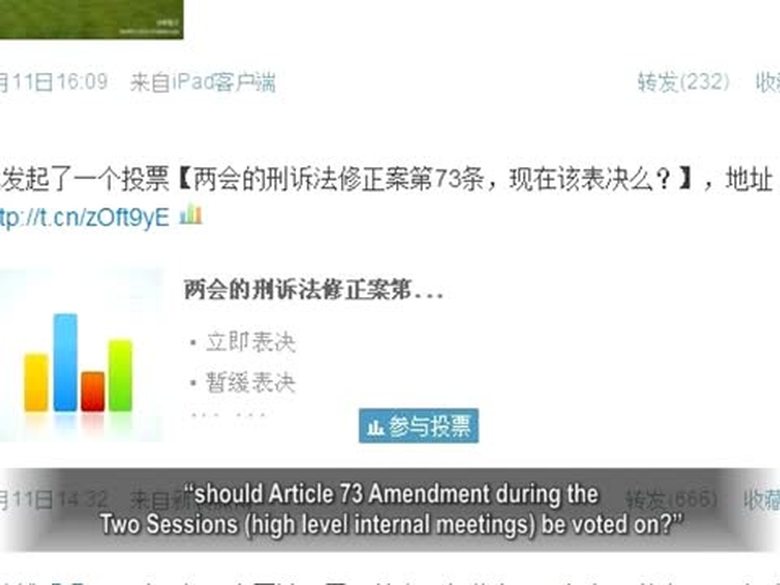
【禁聞】刑訴法73條 黑社會要合法化?
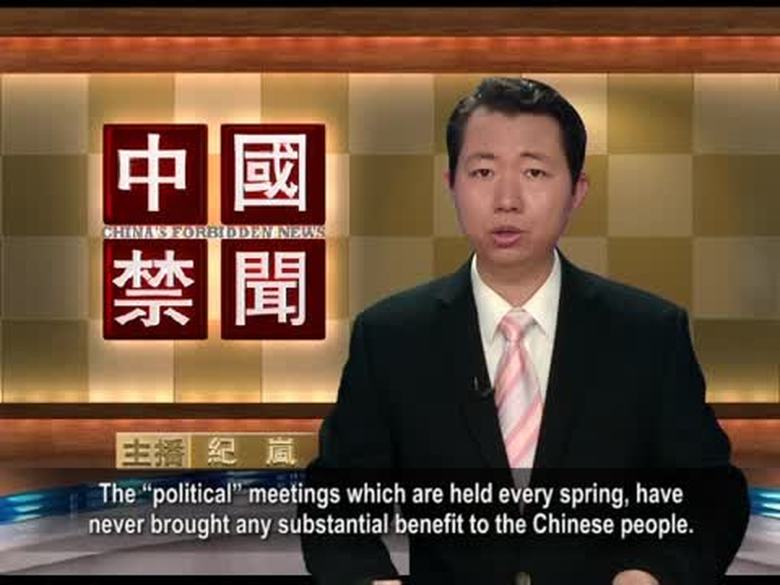
【禁聞】作家:兩會是世界上最成功的失敗
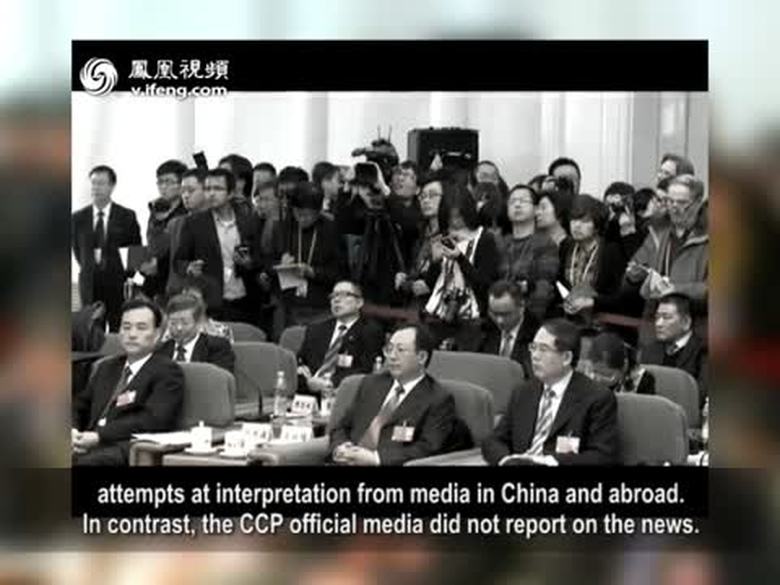
【禁聞】薄自說自話 官媒封殺 中央不認可?
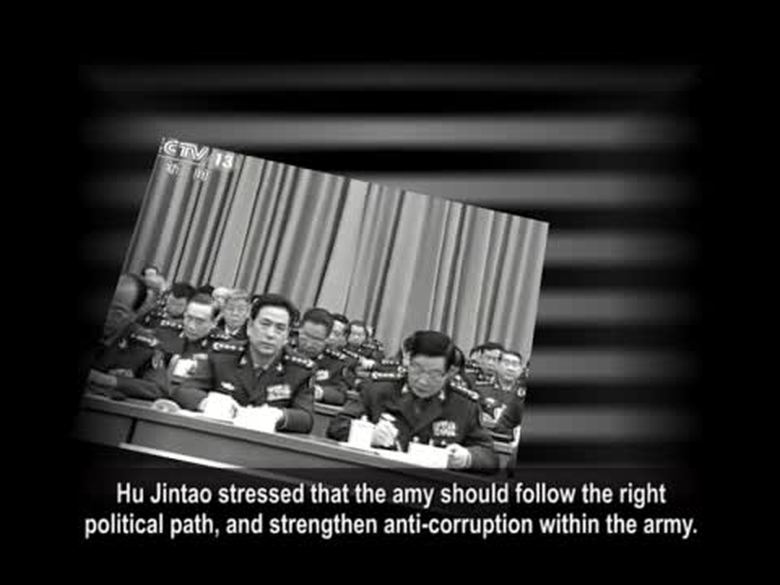
【禁聞】胡錦濤強調以黨領軍 貪腐集團角力
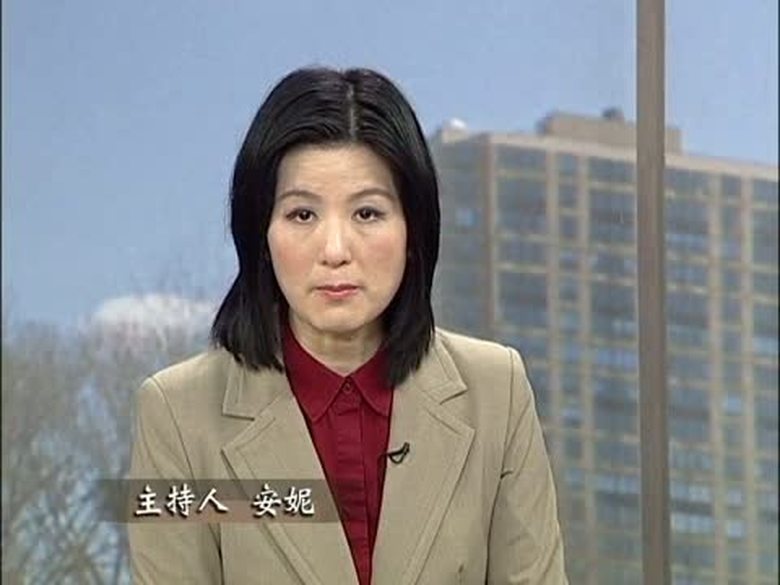
【禁聞論壇】誰騙誰?
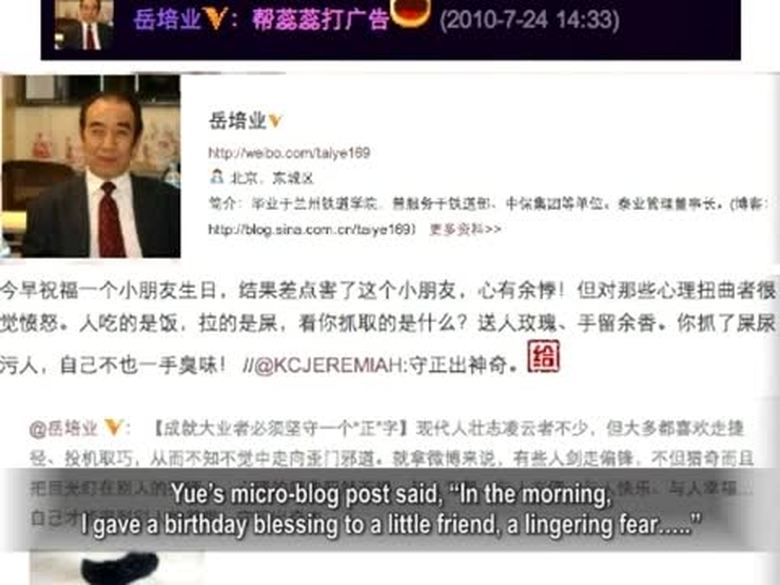
【禁聞】網民娛樂兩會 「乾爹」爆紅網絡
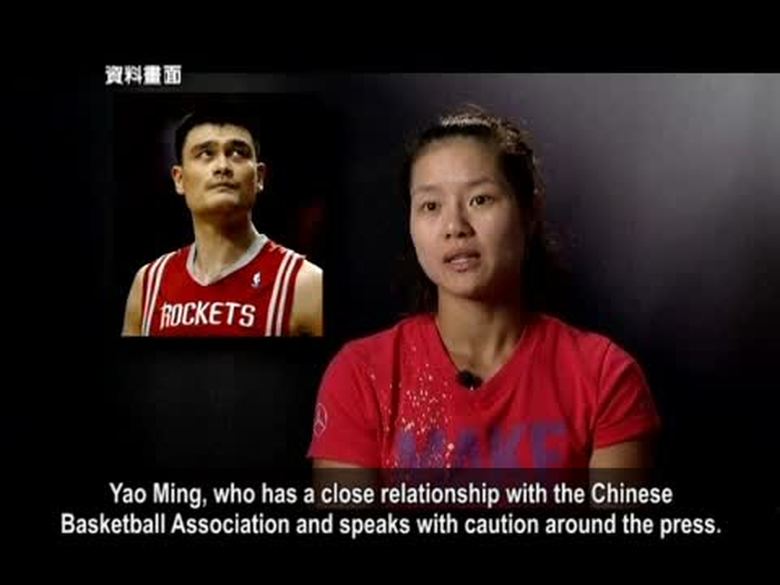
【禁聞】李娜:打球不為國家
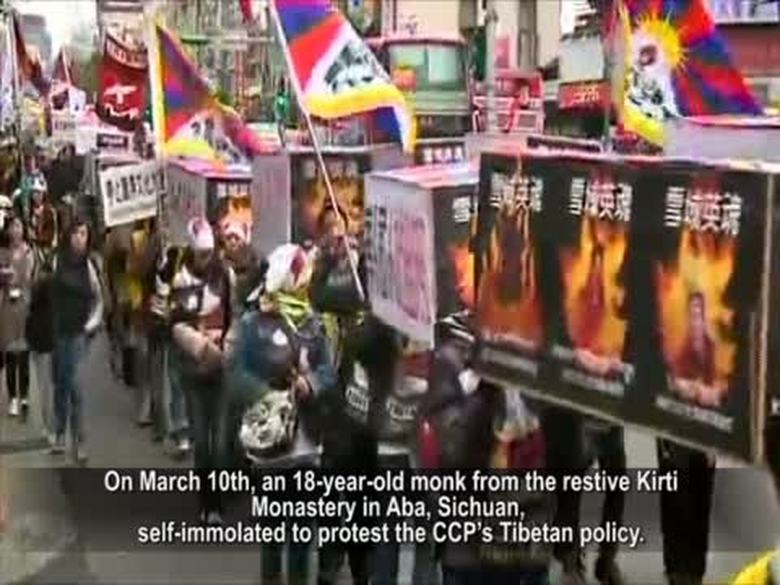
【禁聞】3.14拉薩事件回眸 示威抗議變自焚
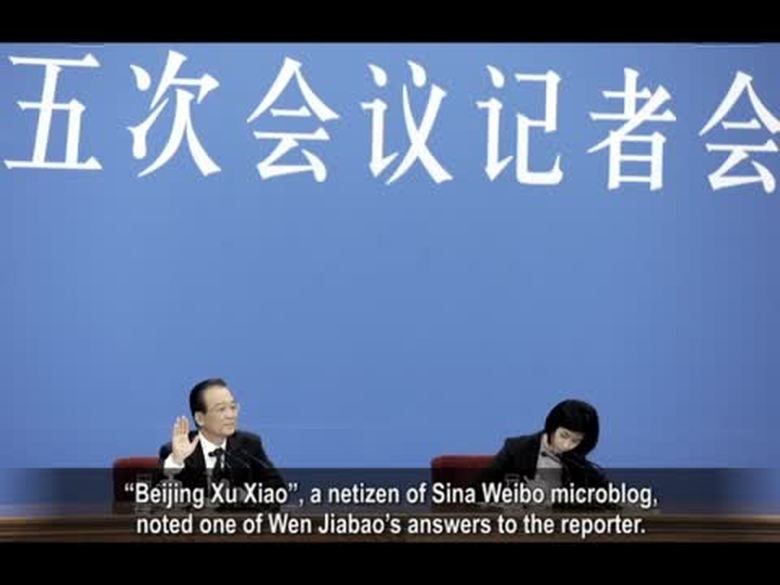
【禁聞】溫家寶33次說人民 不提「共產黨」
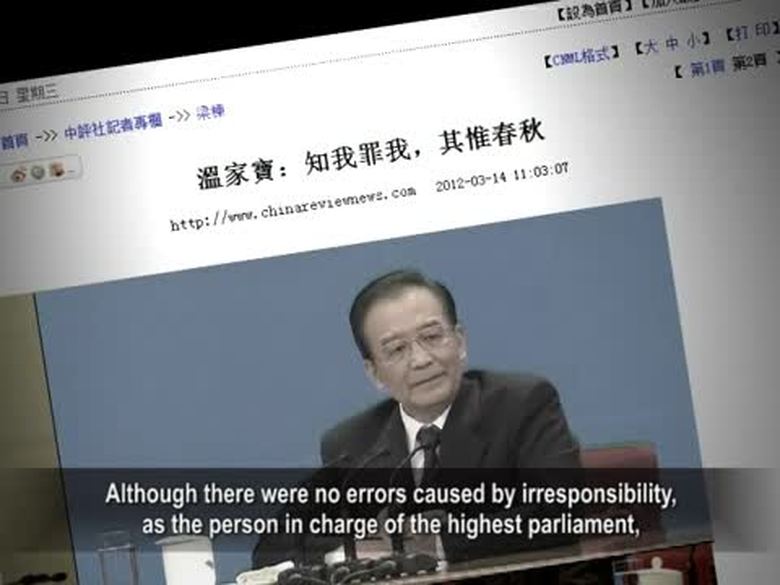
【禁聞】溫家寶承認工作缺憾 求諒解寬恕








